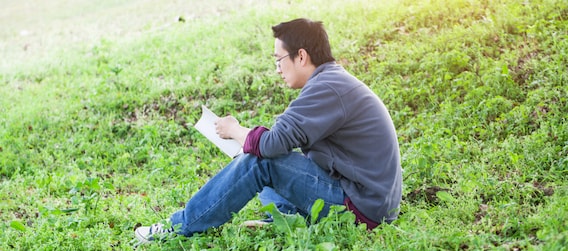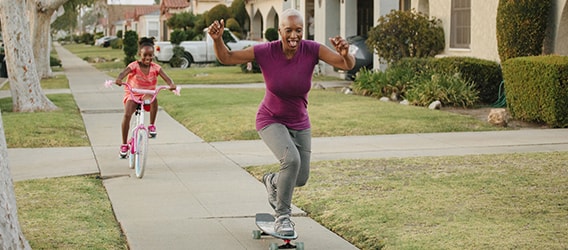Self-Confidence and Self-Compassion with Sheryl Sandberg & Adam Grant
When you treat yourself with the same kindness and understanding you’d show a friend, that’s self-compassion. When you believe in your abilities, that’s self-confidence. We can practice self-compassion and develop our self-confidence on a daily basis to build resilience.
ADAM: After Dave died, Sheryl was going around and just apologizing to people constantly.
SHERYL: I felt guilty. I blamed myself for Dave's death, I blamed myself for how much I was inconveniencing everyone. And Adam said to me, you're saying the word sorry all the time. I've been here an hour and you've apologized for ten things. Stop saying the words I'm sorry. It's not your fault.
Option B Self-Confidence and Self-Compassion with Sheryl Sandberg and Adam Grant Authors of Option B
ADAM: We started talking a little bit about this research on self-compassion, which is all about how we constantly beat ourselves up for things that may be mistakes, but may also just not be our fault to begin with. Kristin Neff, a great psychologist, defines self-compassion as approaching yourself with the same kindness and understanding that you would show to a friend.
Self-compassion: Approaching yourself with the same kindness you would show to a friend
ADAM: I think one of the things that a lot of people don't anticipate is when they face hardship in one domain of their life, it can affect their confidence in all other domains. Psychologists actually call this secondary loss. So there's a primary loss and then following that there are all these cascade effects that people really are not prepared for.
Secondary losses have a negative impact on different parts of our lives after loss or trauma
SHERYL: I had spent a lot of time thinking about self-confidence. I struggled with it all my life. Then I gave my TED talk, I wrote Lean In, and trying to help other women build their self-confidence I built mine up too. But then when Dave died my confidence crumbled overnight.
ADAM: There is researching suggesting that journaling can be really helpful in this process.
SHERYL: Adam told me that I should write down every night before I go to bed three things I did well. And so I started doing it, even though at first I had nothing to put on the list. You know, what did I do well? I made tea, I got through one meeting without crying or at least without crying a lot. But these were the small wins. And when I went to bed writing three things I did well, what I realized is that even before Dave had died, I went to bed every night worrying about what I did wrong.
SHERYL: And so now I've told lots of people to do this, and lots of my friends have written down three things they do well and it is transformative.
Focusing on small wins can help build confidence
SHERYL: I don't think I realized how much time I spent beating myself up for things that went wrong, rather than focusing on the things that went well.





